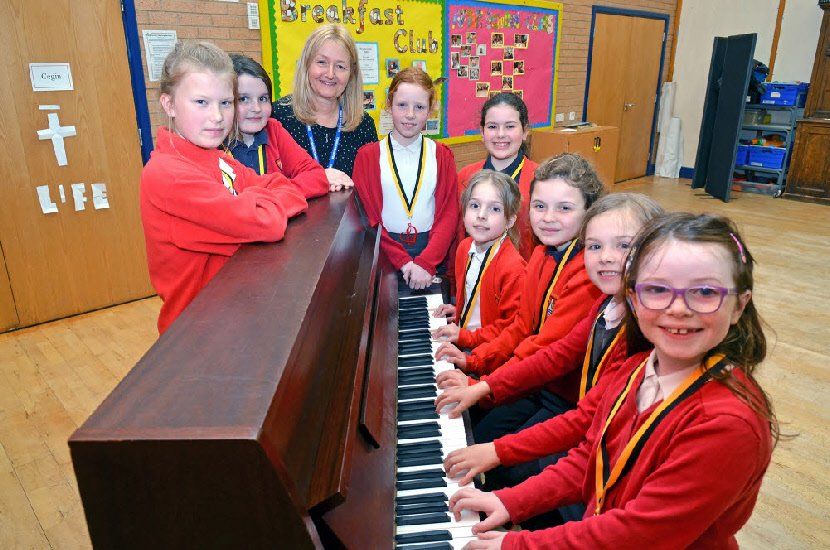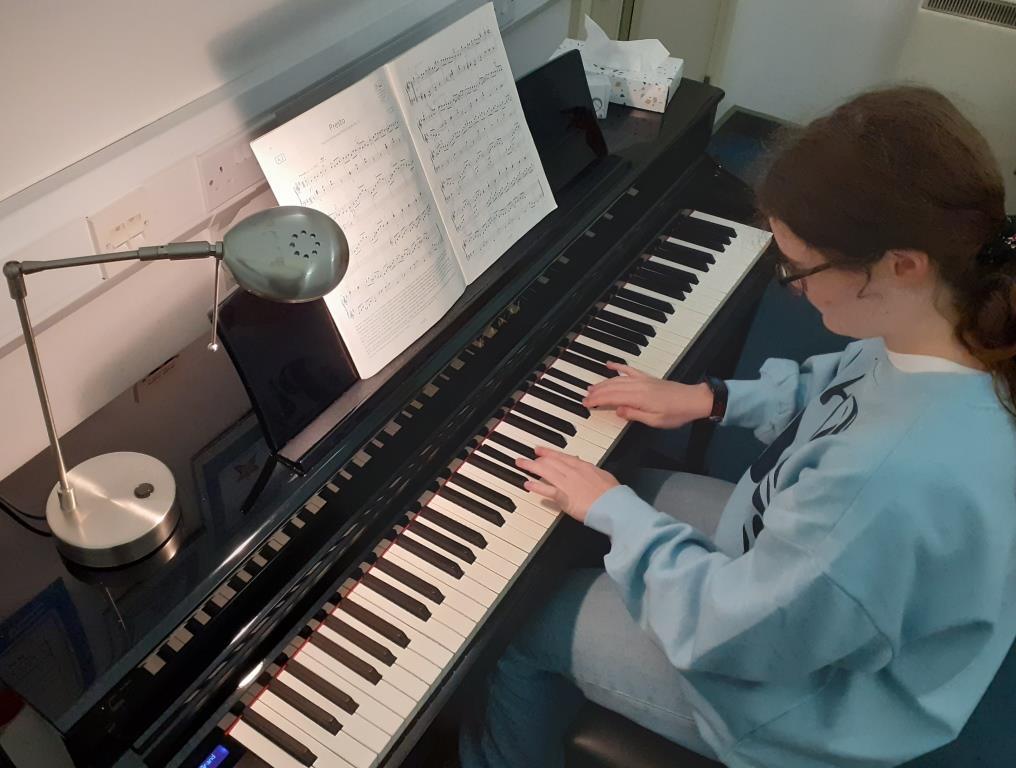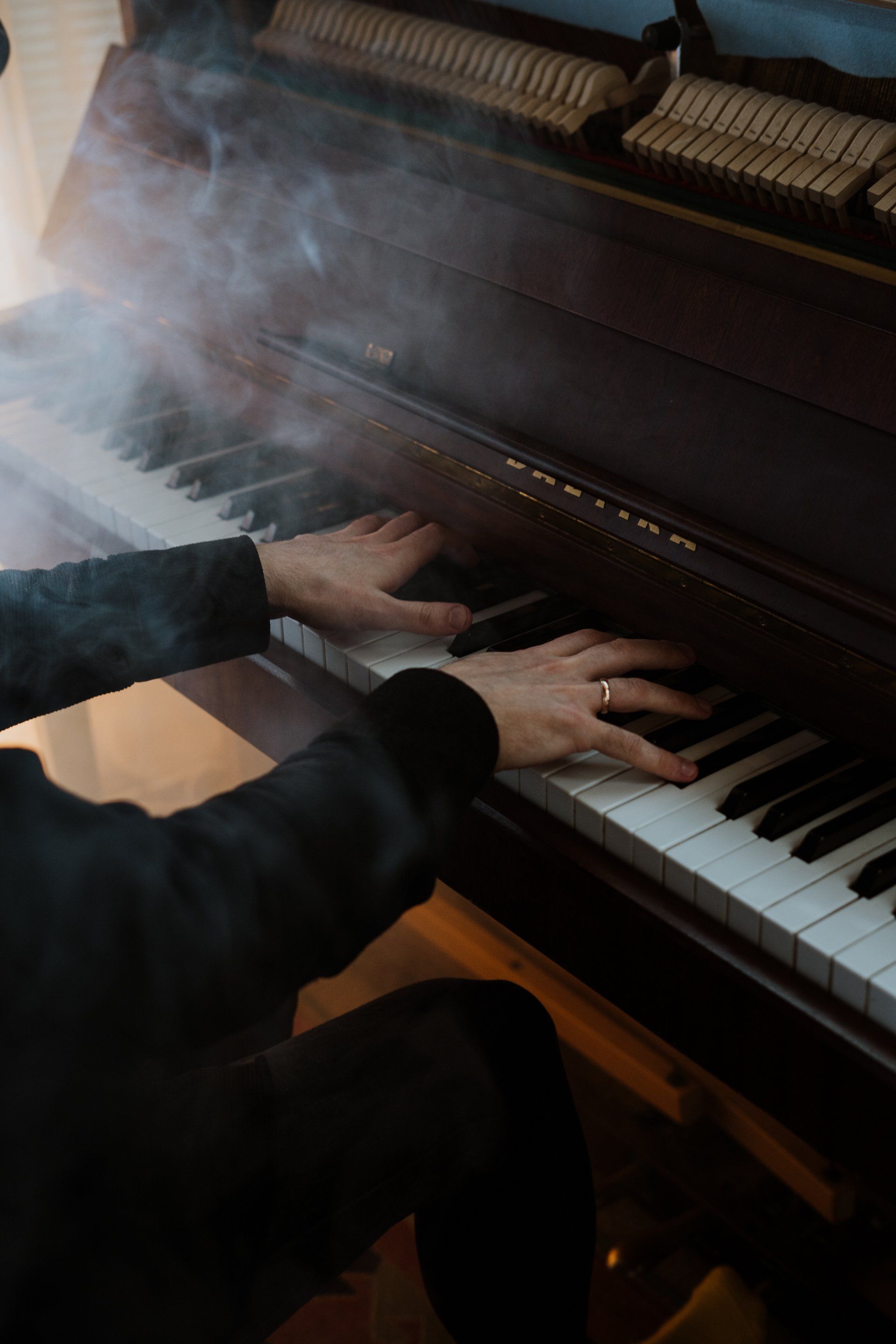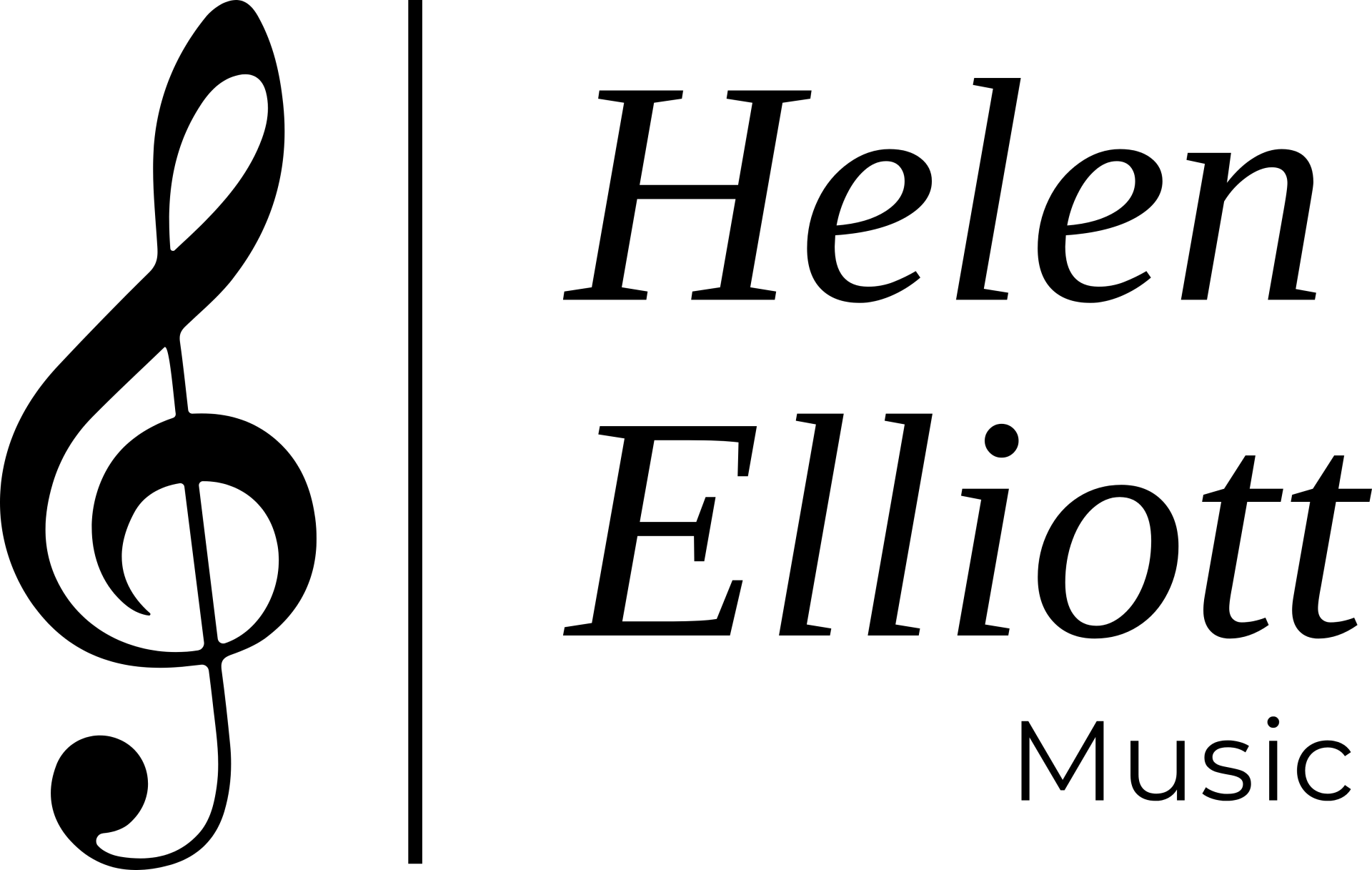Music in the Community
Music in the community

Learning to play the piano can feel very isolated at times. As a piano teacher I am always seeking ways of enabling my students to engage in the wider community to showcase their skills and talents. Actively taking part in musical events is an excellent way of developing performing skills. It raises self-esteem and offers an opportunity to share the enjoyment of playing the piano with family and friends. Students often love the challenge of performing in front of an audience and it gives them a huge sense of pride when sharing their success. In my experience, I have always found that young performers enjoy an end goal, and it also increases practice. I often see the students becoming more actively engaged in their choice of material and leading up to the event, they enjoy the thrill and excitement of planning their performance.
Our annual Cheese and Wine Fund Raising concert gives the performers a sense of purpose. Our aim is always to offer a relaxed, purposeful atmosphere and to encourage the pianists to enjoy their special moment on stage. At the same time, we can raise much needed funds for local primary schools. Being part of a community event is not only rewarding for everyone involved but there is usually the added benefit of actively the involving the performers in event preparation, such programme designing, setting up the stage, handing out leaflets, making table decorations and selling raffle tickets.
So, taking part in a concert for your school or community is not just about the performing; it’s about giving. It’s about connecting with people and the local community. Did you know that there is a huge amount of evidence that suggests that taking part in a community event can have long term benefits on our physical and emotional health? It is important to encourage young people to engage in charitable giving and being able to play an instrument is an excellent avenue for enabling this. Not only does it raise valuable funds for worthwhile causes, but the experience can have a positive impact on their lifelong learning. There are of course, many other ways that young people can get involved in charitable events – you don’t have to be a pianist or a musician! For example, taking part in a charity walk or donating a small gift can give you the same feel-good factor.



